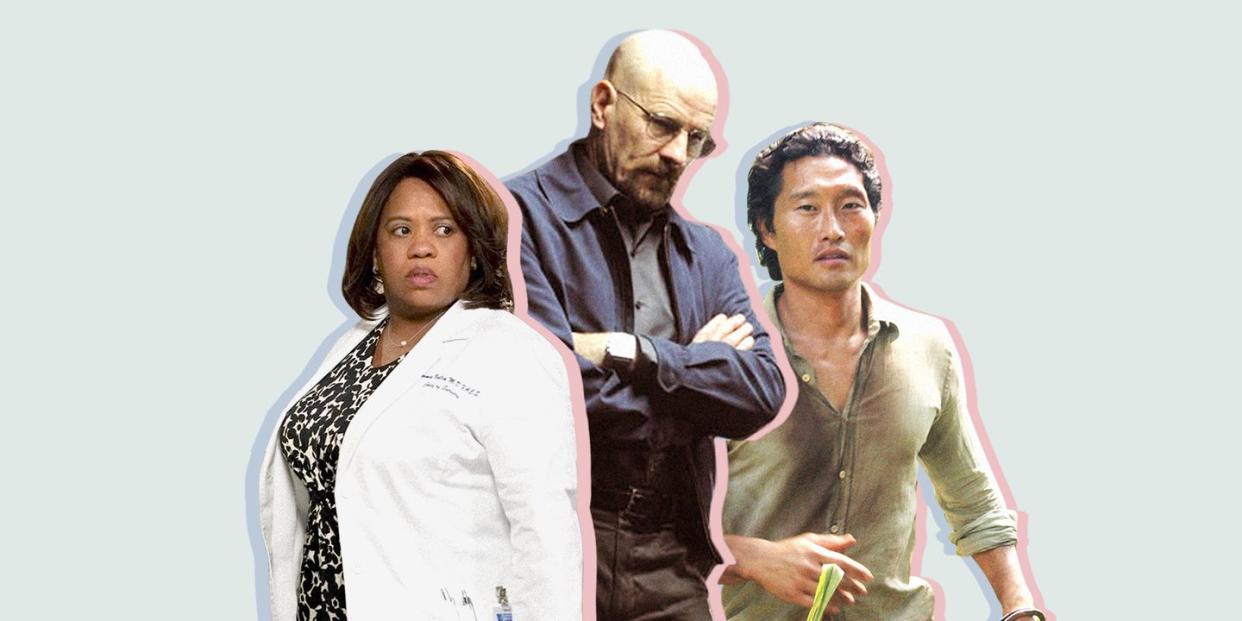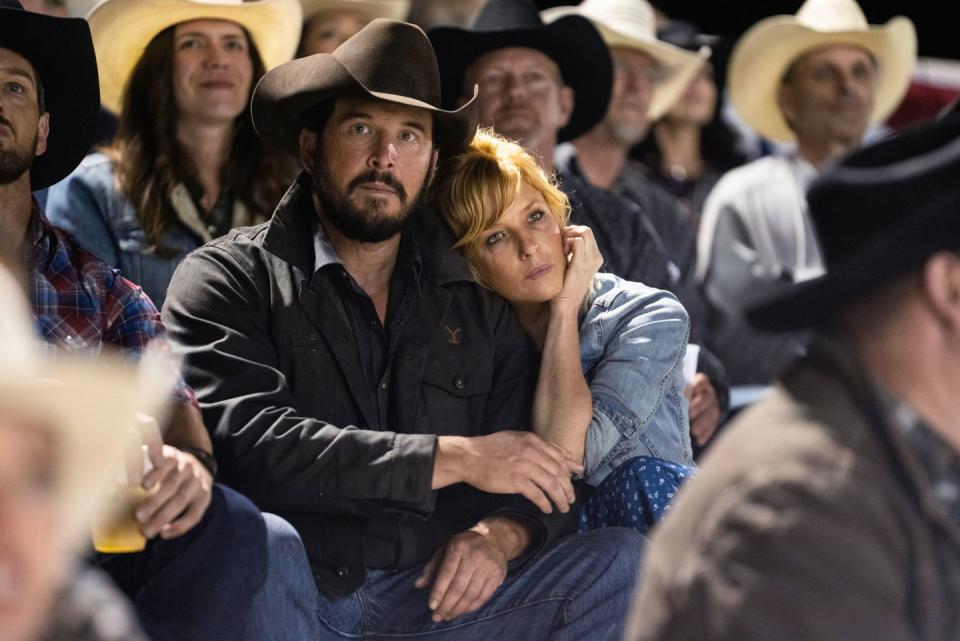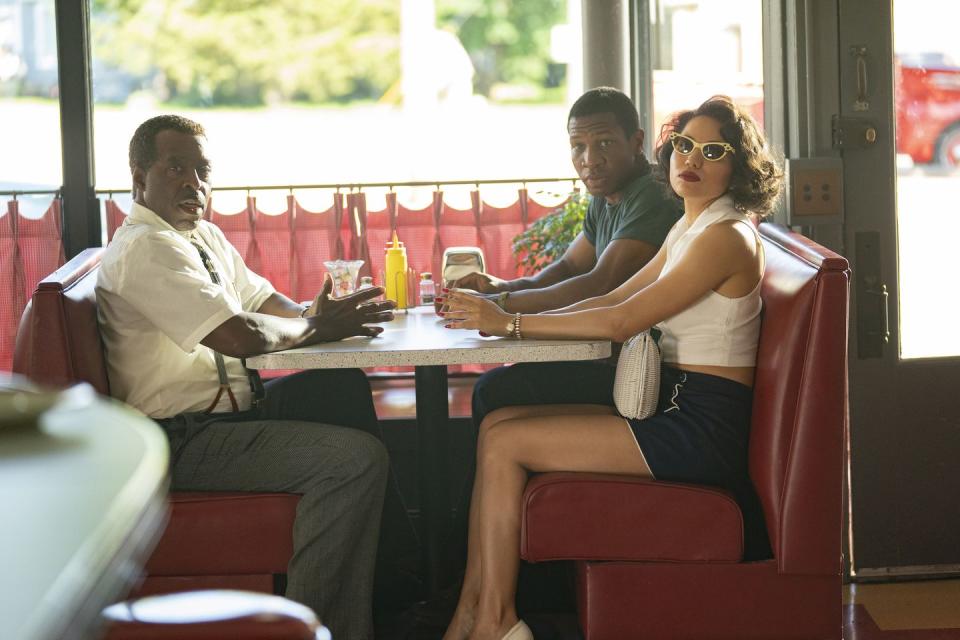Everyone Thought Appointment Television Was Dead. In 2020 It's Thriving.

Sometime in May, I realized I had no sense of time. It was just me, blackout curtains drawn, right hand permanently stained in the hue of Red Dye number whatever Doritos are. With TV production stopped, I fell into this dark timeless hole where TV binges took over my life. At one point, I was just looking at a screen that says "Are You Still Watching?" and all I could do was angrily snarl back, "Am I, Netflix? Am I still watching?" I'd been that way for a few months now—my life needed structure, meaning. My life needed appointment TV.
Culture commentators argue that appointment television has been dying a slow death for years, starting back when House of Cards came along as the first major streaming series, chipping away at TV as we knew it. And that's true. We digest a lot of television in hearty burps now: 13-episode binge watches that take the emotional investment of a year, crammed into one weekend. Even the online conversation that once united Shondaland fans or Walking Dead stans has transformed. There's this perfect encapsulation of what used to be, detailed in Vulture, where Matt Zoller Seitz writes,
"Nowadays, the online conversation around streaming series still exists, but it takes a different form. If a show starts trending on Twitter, it’s often because people have already watched the full season and want to recommend it to others, not because they want to experience the same moment with everyone else."
Now, TV watching is the equivalent of annual pop culture one-night-stand. And Seitz was right... perhaps until just recently. Even with the advent of streaming, weekly television wouldn't give up. And that resilience has offered us something to look forward to in this very strange year.
At first, the pandemic seemed like it might expedite this rapture of weekly episodic television, knocking production schedules off their rails, but the twist is people are watching scheduled TV more. All of us, as it turns out, are looking for some semblance of structure in our lives. And as silly as it sounds, I think that appointment television represents this weird human connection to look forward to—a friendly interaction, if you will, that you can rely at the same day and time. In an era when everything feels so uncertain and fleeting, appointment television has reemerged as this reliable totem of time and consistency.
In case the phrase escapes you, appointment television is exactly what it sounds like: television taken in "by appointment." Remember when TGIF was real? When Thursday night comedy thrived and The Walking Dead wasn't a cash cow that bastardized its source material? Back in the heyday of appointment television, my personal schedule was dictated by the shows that were on that night. Sunday night Mad Men. Wednesday night Lost. Not particularly the coolest cat in high school, these characters became friends I cared about. I waited for them once a week: Peggy's ascension to account director was an overdue triumph. Charlie's untimely drowning in an underwater bunker hit so hard because I spent so long with him beforehand.
But back in March, series still in production started closing shop early for fear of coronavirus outbreaks. I had this sneaking suspicion that this would lead to a catastrophic loss of what little appointment TV remained. Procedurals like Grey's Anatomy cut their seasons short, and reality series like Survivor and RuPaul's Drag Race moved their finales to a virtual format. Show by show, appointment television fell victim to the pandemic. With no new season of The Bachelorette, Monday blurred into Tuesday. Without Survivor, Wednesdays became this vague concept that happens sometime during the middle of the week.

In a year where all the days look the same and your office is home and home is vacation, television-less days blend together like flavors of gummy bears or spinoffs of SVU. Spring was bleak, like much of the rest of the world. Television stalled on exactly what would come next. In a twist though, the winner that prevailed was the same television programming that we once seemed to be moving away from. It seemed like despite the prevailing trend, scheduled network TV was our salvation.
I clung to summer shows that ran on a weekly basis, even if it wasn't exactly what I'd normally watch. Apparently, you did, too. Yellowstone boasted a premiere audience of over four million on Paramount Network. Big Brother is holding steady ratings on CBS. We're all obsessed with Lovecraft Country. All the while, networks are going to great lengths to produce shows that are going to premiere at some point this fall. It's not a bad move either. Early out of the fall TV gate, even shows like Dancing with the Stars are seeing ratings boosts like they haven't seen in three years. And sure, you can watch a series all in one gulp, but I have a theory... it dials back to being a loser in high school.

Separated by a mask and at least six feet, I can't think of a time when appointment television would be more ideal. There is something about following a story along and being courted with plot. Appointment television doesn't allow for a quick fix; it requires a commitment and a dedication to developing a relationship. It's always the reason I preferred it to streaming a show because with appointment television, there was time to marinate in the narrative.
As people return to the format and find themselves refreshed to fill their nights with something to look forward to, even streaming giants are getting in on the move. Amazon Prime's The Boys streams on the platform but are only releasing episodes one at a time on a weekly basis. Disney+ is bringing back The Mandalorian in October. After literal years of waiting, Fargo is going to pull you in week to week. Hell, even The Masked Singer feels like a refreshing dose of predictably contained chaos. Just when we thought we couldn't be bothered timing our lives around TV, our schedules opened up reminding us how gratifying it can be to invest in something consistent.
A full reversal would be nuts, right? Imagining a TV landscape where everything fit in a nice schedule again would be wild, if not impossible for the sheer volume of television being produced. But there is something alluring about the middle ground: knowing that there's something particular to look forward to on Tuesdays. Going on these weekly adventures with people in lieu of the social interaction we so desperately need. And perhaps this period of time is subtly reminding us how important that narrative patience can be.
With this hopeful shift, I think about the end of Game of Thrones. I recently considered that Game of Thrones was the last time that we, collectively, wait with bated breath on the next installment of a television series. No matter the ending, we all cared enough to watch because we were invested in the story. The big moments—seeing Sansa feed Ramsay to dogs, the Red Wedding, Daenerys's downward spiral—mattered because we stuck with the characters on their journey. We cared enough to wait, and in their own ways, those characters made Sunday nights matter by making us stick it out with them.
You Might Also Like

